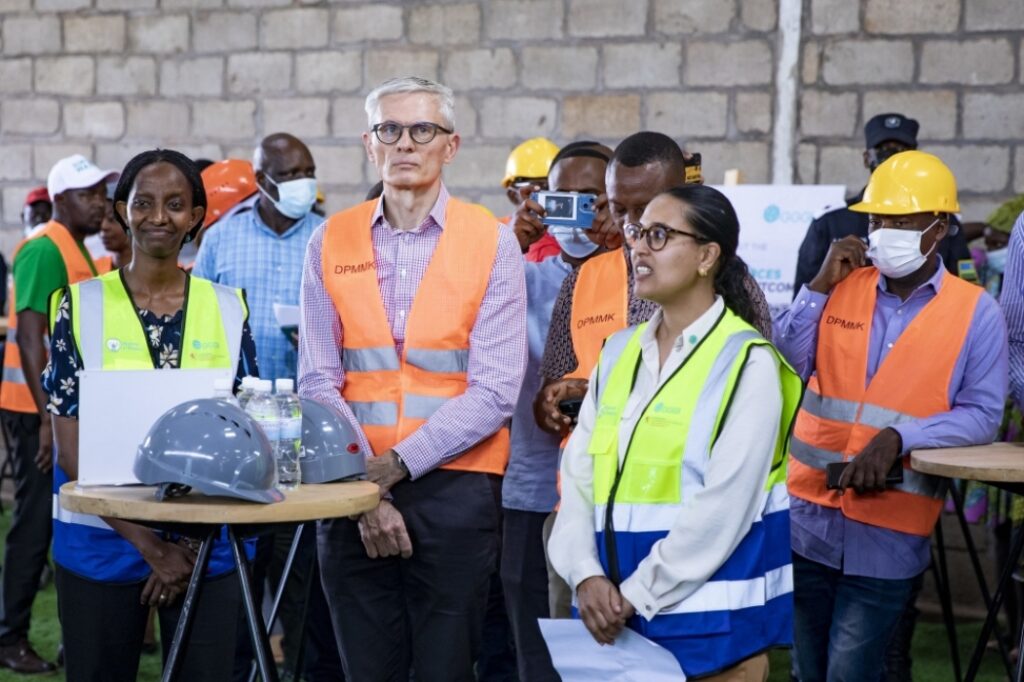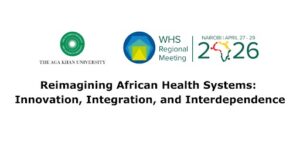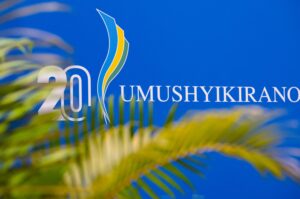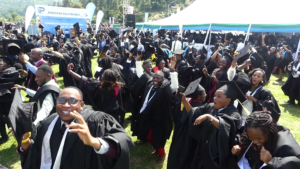By Elie Mutangana
The Government of Rwanda with the support from Government of the Grand Dutch of Luxemburg inaugurated a ground breaking ‘waste to resources project’, aiming significantly at improving municipal solid wastes and hazardous waste management in Rwanda.
The piloted project was implemented by Global Green Growth Institute (GGGI), in partnership with Rwanda’s Ministry of Environment since the last three years.
The project saw the construction and inauguration of ‘wastes to resources’ facilities at Nduba dumpsite in Kigali.
The built facilities are expected to avail the necessary resources to help the country tackle the longstanding issue of waste management and disposal.
The facilities includes; a Waste sorting and Separation facility with the capability of handling hundred tons of wastes per day, ensuring that the recyclable materials are efficiently processed and reintegrated to the economy.
There is also a bio-waste facility with capability of treating five tons of organic wastes per day, transforming wastes into valuable resources such as composite and biogas.
Thirdly, a 60 tones capacity Wellbridge was built to enhance the ability to manage and monitor wastes flows accurately in Kigali.
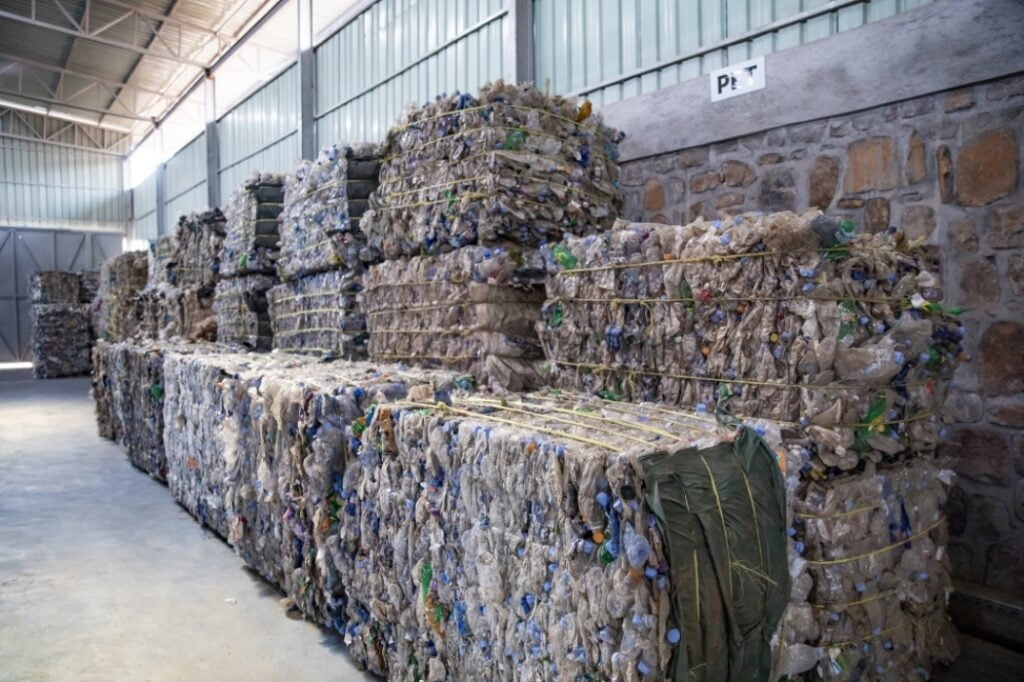
According Rwanda’s Nationally Determined Contribution to Climate Change, wastes is the largest emitting sector, contributing to up 12 percent of the total green gas emission in the country.
Fulgence DusabimanaVice Mayor of Kigali city,in charge of Urbanization and Infrastructure during the inauguration of the facilities at the dumpsite admitted that the city has been following the linear waste collection and dump approaches which was not appropriate in this era of environment protection and climate resilience through mitigation and adaptation strategies.
Given that Kigali city has been rapidly growing in all corners in the last four year, the growthresulted inthe increase of municipal waste generation.
“The increase of waste generated in Kigali has created the big pressure and environmental damages. There was thus the need for a change in our approach toward a more efficient technologies in the waste sector”. Said the Vice Mayor.
He lauded that the presence of the project and built facilities ‘is not a testimony to the city’s collective commitment to embracing waste management but also a significant contribution to a short-time government priority in assuring a green Kigali’.
“The city of Kigali is strongly committed to assuring the investment made here are sustained and we look forward to working with other partners for further enhancements of waste valorization along the value chain”.
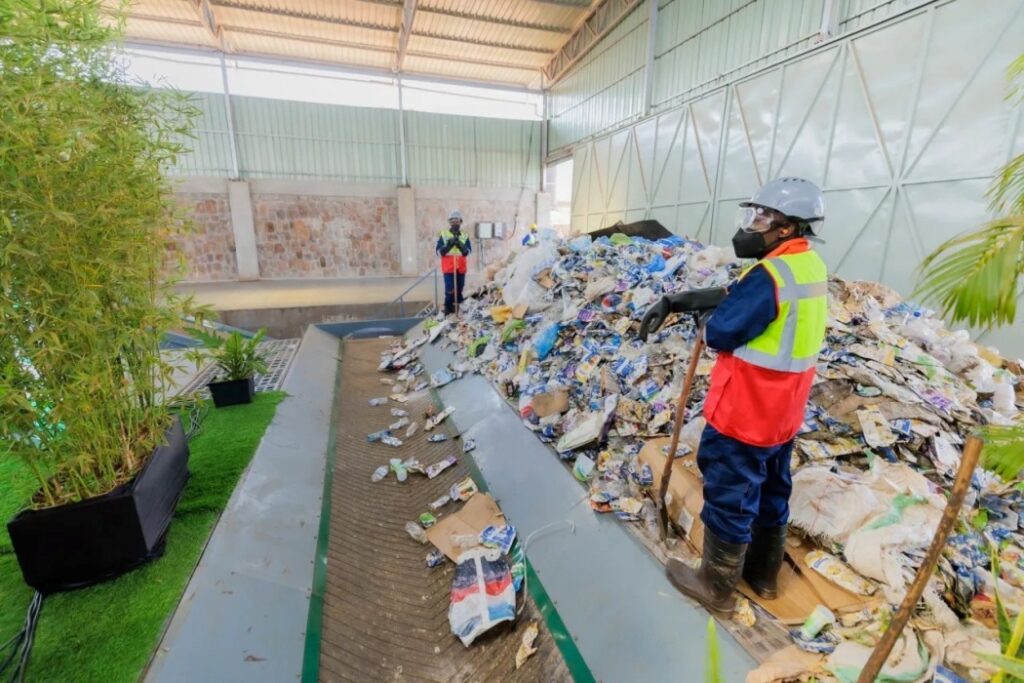
Engaging the population is a key.
Throughout the three years of the implementation, ‘Waste to Resource’ project worked closely with the city population and other actors in the value chain such waste collectors for capacity building and education on waste management, focusing critically on educating households as the largest generators of wastes.
For sustainability, the implementor educated them on waste sorting and separation to effectively separate organic waste from inorganic waste for efficient facilitation for resource process at Nduba.
The project went across all 164 cells in Kigali city and distributed trash bags to households. Each household received two trash bags for keeping the organic and inorganic wastes separately.
During the demonstration day at Gatare cell, Niboye sector in Kicukiro district, residents and local leaders demonstrated commitments and readiness to embrace the waste management.As result, residents now seewastes as resources to be treated rather than being trashed.
“We were delighted to have this project in Niboye sector. We have witnessed significance in waste management. For example, people have now understood the importance of separating wastes. The critical achievements also made was to change the mindset of the people they had about waste”. Said Jean Bosco Munyantore, Executive Secretary of Niboye sector.
Kigali cityunderstands that the ‘Waste to resource project’will not only allow the city to tackle the issue of greenhouse gas emission but also foster the creation of green employment opportunities.
Xavier Bettel, Luxembourg’ Minister of Foreign affairs and Trade who addressed a remark at Nduba during the inaugurationreminded that ‘Economy and the environment are not enemies’.
He emphasized thatputting efforts is not restricting, yet it is just to better leave the planet to the next generation because ‘there is no planet B’.
“it’s not a change that have to be a luxury and just reserved for wealthy people. Everybody can be a part of the solution because in fact we are all part the problems too”. He said, notifying that waste management is not only a responsibility of the city authority but of everybody including the private sector.
GGGI commends Rwanda’s ambition to become a learning hub.
GGGI Country representative, Caroline Raes said that‘Challenges have been part of the design andimplementation process’ but they had to adapt severally as the organization believes in adaptive management.
Actually, GGGI is an inter-governmental organization that has been working in Rwanda since 2012. Rwanda was the second African country that joined the organization.
Over the years, GGGI not only supported Kigali city with waste management, but supported also secondary cities with capacity building.
“I believe there is a strong potential to replicate this work beyond Kigali in other secondary cities and we are committed to working closely with government of Rwanda to mobilize resources to make it scale up.”Raes said, commending Rwanda’s ongoing move to strictly ban single-use plastic materials, just to tackle plastic waste and pollution.
“Whatever works here we know we’d be able to replicate in other countries where we are operating”. She added.
GGGI is currently operating in African countries including Rwanda, Ethiopia, Uganda, Ivory Coast, Senegal Benin and other several countries such as Kenyaare aspiring to join the organization.

